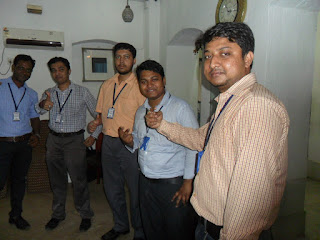How to Get Your First HR job
There’s really no time in your life like it. You’ve completed your formal education or training program and you’re ready to go forth into the world and secure your first fulltime permanent job. The difference is that this time, you’re not seeking summer, intern or co-op employment. You are looking to embark on a career. If you have your heart and sights set on a career in Human Resources (HR), there’s never been a more exciting time to “go for it.”
The changing role of HR
As a passionate and long-time practitioner in the field, I’ve seen HR go through many changes — one of the most positive of which is that the HR function is no longer perceived as an administrative, tactical and paper-pushing role. If your passion has led you to pursue a career in HR, here are some tips you might find helpful in landing that first HR job.
1 . Be open to exploring different HR areas. When starting your HR career, you might not know which HR area interests you the most or which area you have an aptitude for. So be open to opportunities.
It also (almost) goes without saying that if you do have industry experience (through volunteer work or internships for example) you include trigger or key words in your resume that will help get your resume noticed.
2. Join a human resources management association or society. By doing so, you’ll become part of community of HR professionals. This will enable you to keep current with the latest industry trends, network with experienced HR professionals, pick up knowledge through special events and activities, and learn about potential opportunities.
3. Make sure your job expectations are realistic. It doesn’t matter how well you did at school or how impressive your references are, you have to be realistic about your prospects. With limited experience and skills (but limitless enthusiasm), you’re looking at an entry-level, foot-in-the-door job, not an executive-level position.
It’s great to set goals, just make sure they’re practical. Your goal should be to gain the skills, knowledge and experience that will help prepare you for higher-level roles.
4. Seek out and participate in networking opportunities. Career fairs and HR-related functions such as networking breakfasts, are ideal for making connections and building your professional network. And, I can’t stress this enough, be social.
Make your presence known on LinkedIn by joining relevant groups. Social networking gives you the power to reach a larger audience of people and to connect with people who share the same area of interest as you — whether it’s recruiting, compensation and benefits, organizational development or another function within HR.
Take advantage of social networking sites to share content (your profile), find answers, view jobs or make new business contacts.
5. Seek out volunteer opportunities, co-op placements or internships. There are a number of ways for you to gain work experience before your first HR job. Research organizations you’re interested in and find out if they offer internships or unpaid work experience.
Not only does this give you valuable real-world HR experience, it also demonstrates to future employers that you are taking initiative with your career by seeking out career opportunities in a variety of ways. You may find that an internship turns into a full-time job down the road.
And even if it doesn’t, you’re building a career network and future employee references for yourself.



Comments
Post a Comment